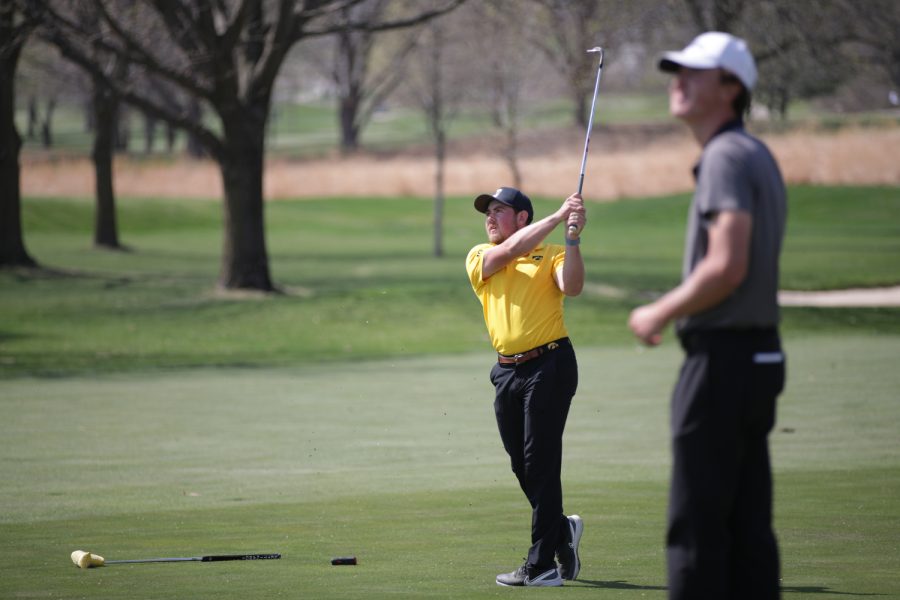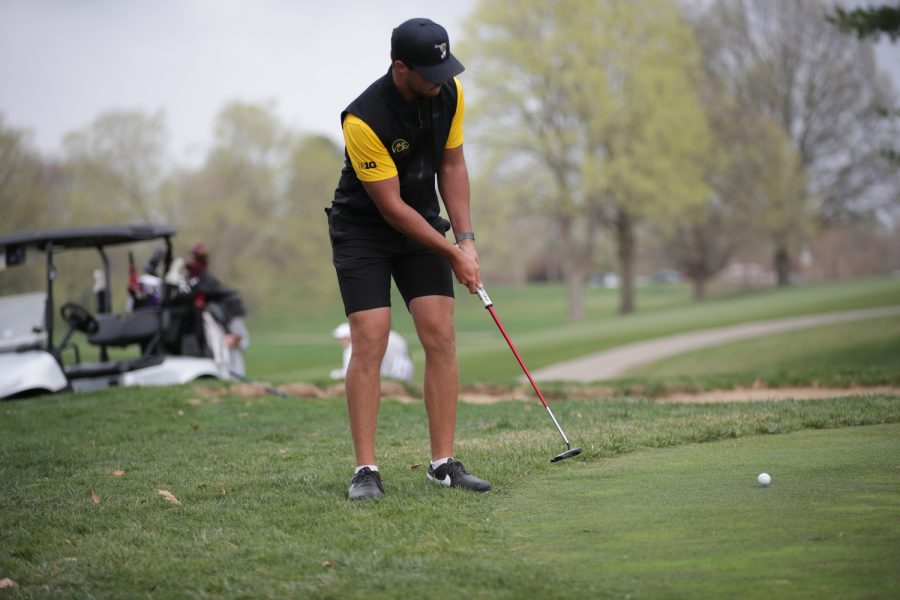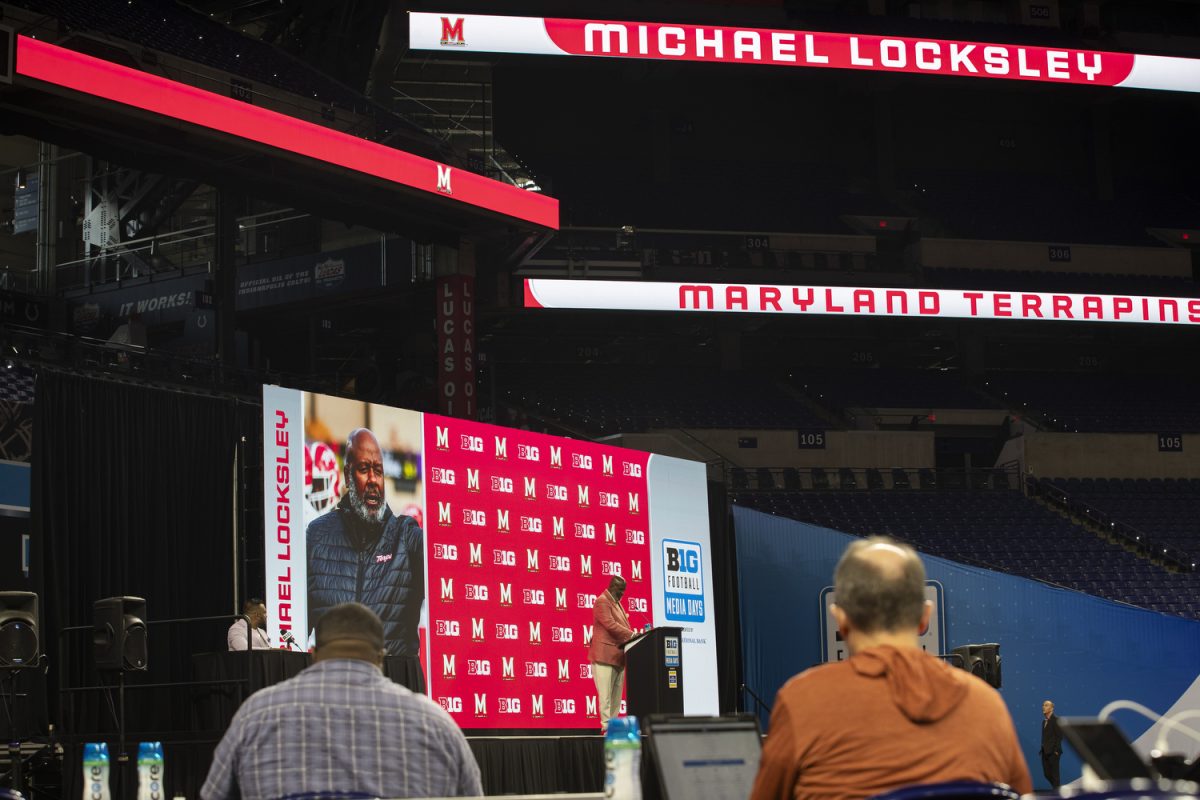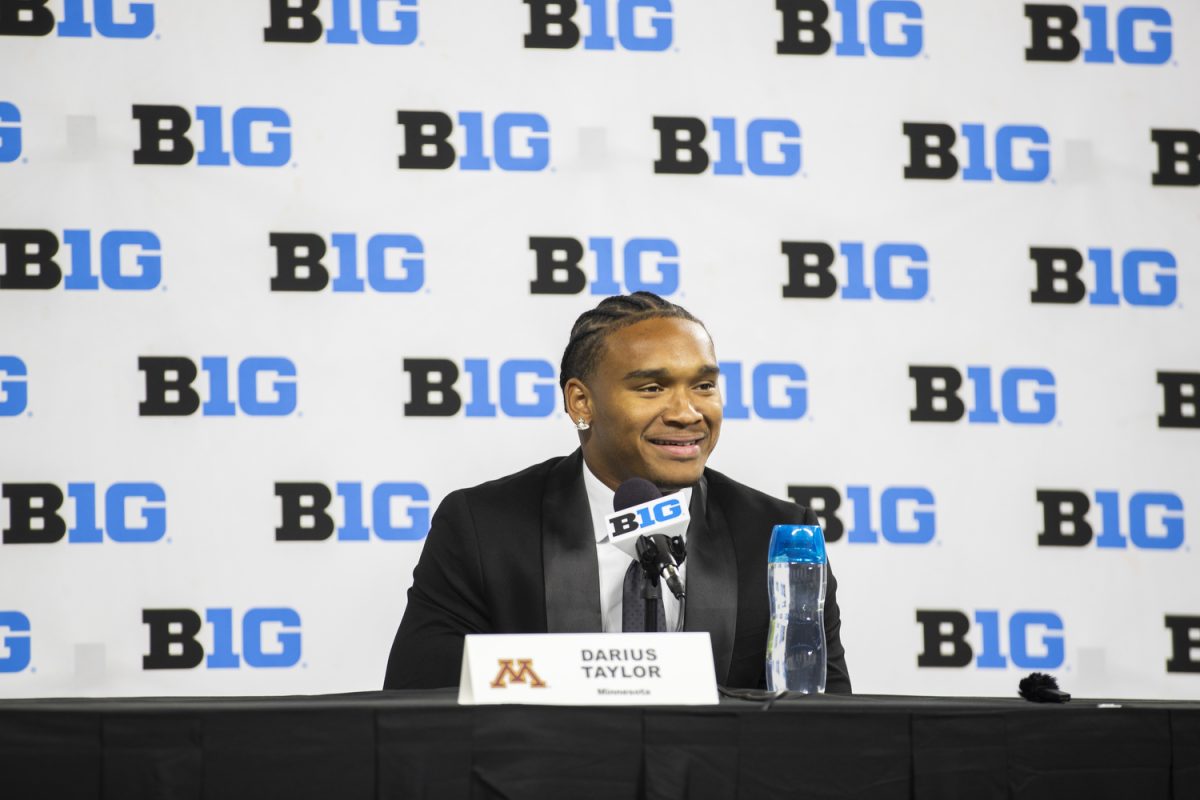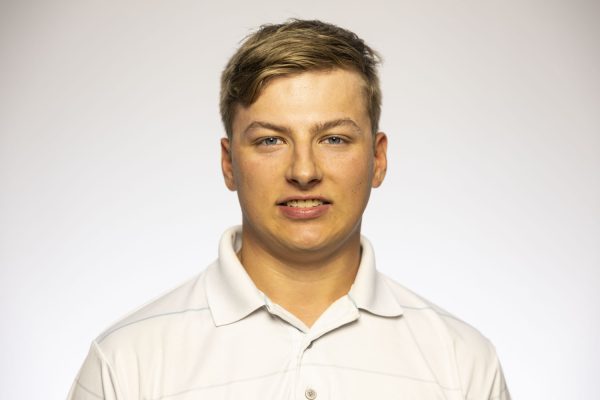When you think of golf, you likely think of legendary figures such as Tiger Woods, Phil Mickelson, and Jack Nicklaus. All those figures are major heroes within the sport, but if there’s one factor that has helped them win a combined 39 major championships, it’s been their caddies.
Caddies are one, if not the most important, part of the game. They help golfers carry their clubs, give them advice, and demonstrate extraordinary leadership qualities.
Enter University of Iowa first-year student Raul Ortega, who moved from Venezuela to the U.S. at 11 years old.
Ortega initially picked up caddying as a summer job, but due to his success, he applied for and won the Charles Evans Scholarship, a unique college scholarship for golf caddies.
From the outside, Ortega seems like a normal college student. However, if you sit down and listen to his story, you’ll find an inspiring story of hard work and determination.
Life on the shore
Ortega was born in the city of Cabimas, Zulia, Venezuela, a large city with a population of nearly 300,000 people. The oldest of three children, Ortega lived a normal childhood. He succeeded in school, made friends easily, and participated in baseball, soccer, and karate, all while taking care of his younger siblings.
But his favorite times as a youth were with his family.
“We would always go to my grandpa’s house for special events, and during Christmas, we would always set off fireworks and party all night,” Ortega said.
By 2016, Ortega was 11 years old and preparing to enter the second level of Venezuela’s education system, which goes until age 15. A major change in his life was soon to come.
Coming to America
Despite his family living a comfortable and happy life in Cabimas, political and economic issues in Venezuela began to worsen, leaving citizens confused and helpless. The economy had declined by nearly 19 percent and inflation rates were reaching record highs.
Like many other families in Venezuela, Ortega’s parents were frustrated and concerned with the direction of their nation and decided to escape the stress of their homeland and vacation to Walt Disney World in Orlando, Florida.
It was Ortega’s first time in the U.S., and he and his siblings finally fulfilled their dream of going to Disney. Over the next few days, the family continued to enjoy time in the Florida sun, and it seemed like a normal family vacation.
“It was always a dream for us to come to Disney and the U.S., and we were really having fun experiencing a new world,” Ortega said.
Then, while dining at an Olive Garden restaurant, his parents dropped a bombshell.
“What would you think if we stayed here in the United States?” his parents proposed.
It was a mixed reaction for Ortega and his siblings. They were very excited, considering the fun they had been having, but the reality of the monumental change soon set in. Ortega said it was hard not being able to say goodbye to family and friends in person.
Ortega’s family in Venezuela was upset with the decision and thought they were making a huge mistake.
“They thought my parents were crazy,” Ortega said. “We were gambling at that moment, but you either make the decision and start over, or stay and the chances of leaving get harder.”
Initially, the family planned to move to Houston, Texas, but Ortega’s father reached out to a childhood friend living in Chicago. After mulling it over with Raul’s mother, the family decided to live in Chicago in a friend’s apartment while they made a new life for themselves.
The apartment was small, with only two bedrooms for the eight people living there. Ortega’s family of five shared one bedroom and either slept together in a bed or on inflatable mattresses on the floor. The three host family members shared the other bedroom.
“There was basically no room or pillow or blankets, but the move definitely paid off in the long run,” Ortega said.
Culture shock
Like many people after moving to a new country, Ortega struggled to adjust to the vast cultural differences between the U.S. and Venezuela. Both nations have distinct musical backgrounds, and Ortega said the music in the U.S. felt like more “radio music” compared to songs in his hometown.
Making friends was also a challenge. He didn’t know how to speak English, and despite being placed with a bilingual teacher at his new school, he still faced bullying from the other kids in the program, who spoke to him with false Spanish accents.
“They would make fun of me for being from a different country with a different dialogue, and that resulted in downgrades academically and emotionally,” Ortega said.
The teasing from the other kids ultimately helped motivate him to learn English.
“I read books and watched YouTube videos and movies in English with Spanish subtitles to help me learn faster,” Ortega said.
The persistence paid off, and Ortega was taking English-speaking classes by his eighth-grade year. However, his shining moment was still to come.
From rackets to golf clubs
When he entered high school, Ortega became involved in soccer and particularly tennis, which he loved due to its popularity in the U.S. compared to his birth country Venezuela.
“Tennis was always on TV in Venezuela, but it’s not a sport that’s played, so it was cool to be able to play,” Ortega said.
By the end of his freshman year of high school, Ortega began to look for a summer job. One of his friends suggested golf caddying. Ortega had never played the sport before, but the job paid well, so he and a friend tried it out.
While he was playing soccer, Ortega had broken his arm three times in a two-year span, but that didn’t stop him from attempting to caddy.
“I showed up to the training session with a broken arm, and I wasn’t able to do some of the exercises,” Ortega said. “But I passed the rules test, and I just kept working.”
Ortega’s peers quickly recognized his strong work ethic, especially Dan Bisazza, the head golf professional at the country club where Ortega worked.
Ortega embraced his new job as a caddie, which would soon lead to a life-changing opportunity that he will never forget.
A life-changing opportunity
As he entered his junior year of high school, Ortega heard of a special scholarship through the Charles “Chick” Evans Foundation, which provides full college scholarships to golf caddies.
After chatting with a friend about it, he decided to apply.
“I realized quickly that I might be a great candidate for it and began to put a lot of time into my application and being a better caddie,” Ortega said.
After he completed his application, Ortega didn’t think he would win the scholarship.
“I didn’t really know what to expect because I didn’t know what type of people they were looking for,” Ortega said.
After waiting for a while, Ortega’s parents received a letter in the mail. It was December, and Christmas was just around the corner. They kept the letter until Ortega returned home from school.
Once he arrived home, the family gathered around, and with his mom recording, Ortega opened the letter.
“When I was opening it, I was shaking because I thought it was between yes or no. I saw it, and they said, ‘You’ve been given a scholarship.’ It was the greatest day ever,” Ortega said.
The scholarship was valued at over $125,000 for four years, allowing Ortega to become a first-generation college student. Along with money toward his tuition, some has gone to Ortega’s family in Venezuela.
“Sometimes it’s hard for them to get three meals a day or buy clothes,” Ortega said. “Getting the scholarship helped me not worry about my tuition and give a lot more money to them.”
College dreams
Today, Ortega is a first-year business student at Iowa and pursuing a dream of marketing or entrepreneurship. He and the other UI Evans scholars live together in Daum Residence Hall.
“So now that we see each other every day, we talk to each other every day. So I feel like it’s great to just get to know each other, and now we’re a family for sure,” Ortega said.
Davenport Country Club director Matt Blaylock hopes to build more youth caddying opportunities in Iowa, and he says that Ortega’s success will play a huge role in the expansion.
“We’re working to build youth caddying in Iowa so others just like Raul have the opportunity to attend one of our 24 partner universities. Raul is a great role model for future Evans Scholars at the University of Iowa to emulate,” Blaylock said.
As the first member of his family to attend college, Ortega wants to help others achieve their own college dreams.
“My goal isn’t to be the only person in my family to go to college, ” Ortega said. “I want to help my siblings go to college and help others from Venezuela as well.”







